An exclusive interview of the “Silk Way weekly” with Professor Christian Reder, project designer, researcher, retired professor of art and knowledge transfer at the Vienna University of Applied Arts and one of the founders of the Vienna Process.
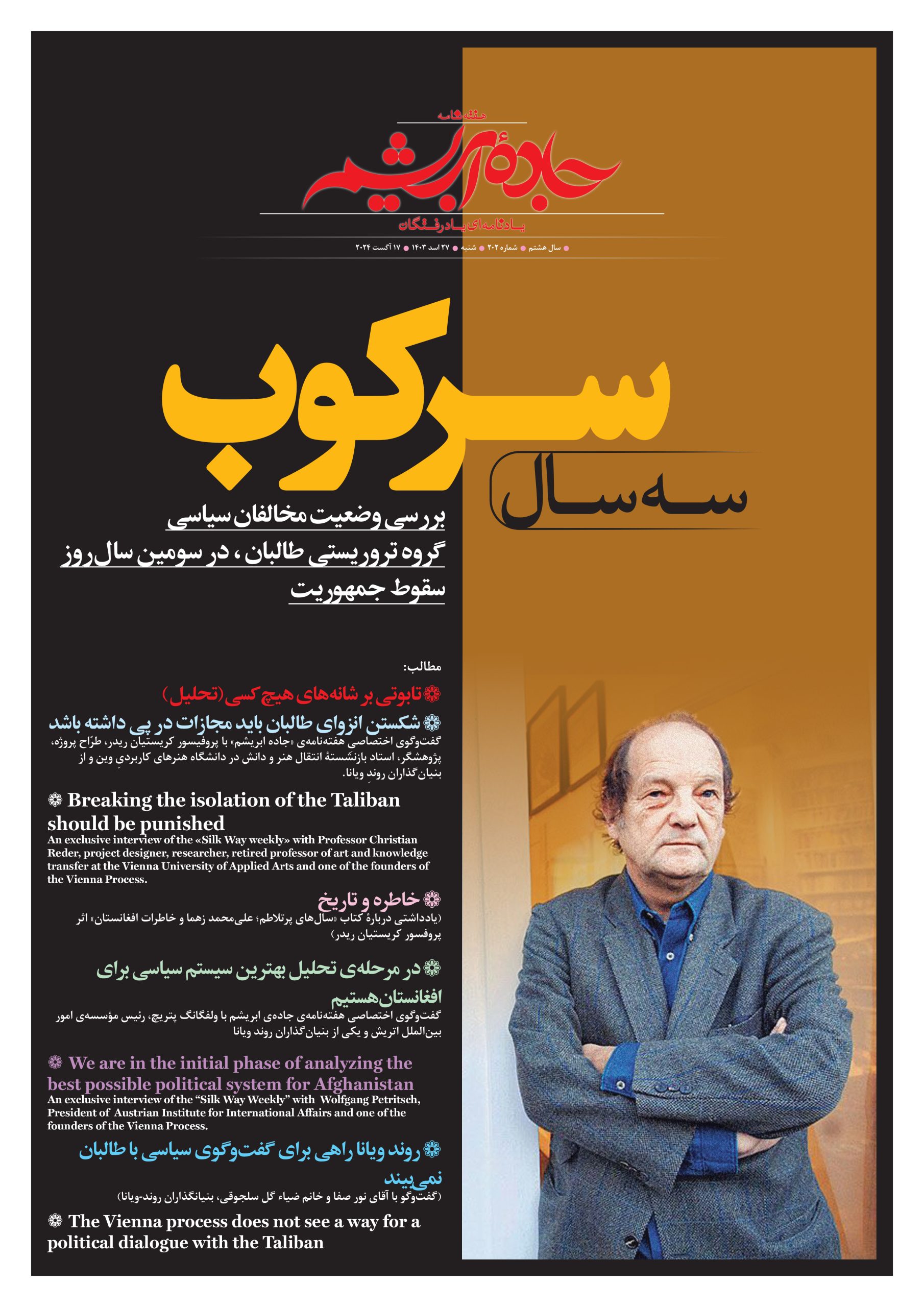 Note: Professor Christian Reder was born in Budapest in 1944 and is a project designer, researcher and professor emeritus of art and knowledge transfer at the Vienna University of Applied Arts.
Note: Professor Christian Reder was born in Budapest in 1944 and is a project designer, researcher and professor emeritus of art and knowledge transfer at the Vienna University of Applied Arts.
In the years 1980 to 1994, he was the operational head of the Austrian Committee for Afghanistan, an institution that implemented various projects for Afghans in Afghanistan and Pakistan during the two periods of Mujahideen domination and then the first period of the Taliban.
Professor Reeder has extensive studies in the Middle East and Afghanistan. He has many works about the history of the Middle East and Afghanistan. He has documented many works about various political and historical issues of the world and Afghanistan. Twenty titles of his books from the “transition version” series have been published by Springer Vienna-New York, which include Afghanistan in pieces (2004), The Transformed Bourgeois, About the Nazi Era of Afghanistan (2016) and The Turbulent Years, Ali Mohammad Zahma and Afghanistan (2018) are among them.
Working and cooperating with Afghans has made him write books about Afghanistan and the historical and social events of this land. “Afghanistan in pieces ” which was published in 2004 and turbulent years, Ali Mohammad Zahma and Afghanistan, which was published in 2018, are among them.
Silk Way weekly: Thank you for having an interview with the Silk Way Weekly on the crisis of Afghanistan. As you have deep understanding of the contemporary history of Afghanistan, these questions get more significance. Because you have cast knowledge on the internal relations in Afghanistan and know what has happened to it and you also have a good understanding what directions Afghanistan is heading on.
If we consider Afghanistan from the beginning of 18th century, especially the formation of local government by Hotakian in 1704 and then rise of Durranis by Ahmad Shah Durrani in 174, in south of Afghanistan within a specific geography, and literally call it new Afghanistan or modern Afghanistan, the country has experienced catastrophic and bloody political events. However, it has bit been able to transfer from its political-historic stalemate and have a political and historical stability. Yet, it is struggling with tradition and modernization, tyranny and political participation, religious radicalism and rationality, racism and political pluralism. Therefore, many questions are raised about the past, present and future political developments in Afghanistan.
Silk Way weekly: The people of Afghanistan experienced democracy about two decades, but it suddenly collapsed and they were caught up with ethnic and religious radicalism. How do you comment of the collapse of the republic in Afghanistan? What were the main factors behind the collapse of the republic system in Afghanistan? Were they political factors, cultural factors, local factors or external factors?
Professor Christian Reder: This surprising collapse was a shock for all involved. It was an example how fast situations can change. Even the attack on the capitol in Washington D. C. nobody expected and nobody believed, that such things are possible in our days in a leading democracy. In Afghanistan was the main problem that powerful foreign military forces had never an equivalent with initiatives to build up civil structures. But trying this ,from outside’ fails easily, especially in societies destroyed by long years of war and social destruction. There was too much believe in steady success and that foreign money solve problems. But stability was never reached.
Silk Way weekly: How do you evaluate the presence of the US and international community for two decades in Afghanistan and then withdrawing from the country?
Professor Christian Reder: As I said before, the balance between military and civil forces was never satisfying. All started with the ,war on terror’ by US-forces and NATO, but not guided by United Nations support. Even the main enemy Osama bin Laden could hide successfully for ten years. Such wars are never ,clean’. The enemy seems to be everywhere. Also many civilians were killed or injured by local attacks. To see foreign soldiers as friends became more and more difficult. Then some parts this armies changed their goals towards the protection of civil reconstruction and support for building schools and roads. This mixture of fighting and civil services was hard to understand. Billions for equipment, training and salaries was given to the Afghan army and security forces. But CIA and all the US-consultants for the government did not see the passivity of the local forces and the lack of leadership. It is said, that soldiers often got no salaries. Why then they should fight the Taliban troops?
Silk Way weekly: You know Afghanistan did not have certain borders before Amir Abdul Rahman Khan and as a result, from the time of Ahmad Shah to Abdul Rahman Khan, Afghan rulers fought wars to expand Afghanistan as a failed attempt towards Sindh and India from the south east and towards Nishabor and Mashhad from the west of the country? Conquest within these borders occurred during the reign of Abdul Rahman Khan as a result of the Great Game Doctrine. In other words, Afghanistan with its current borders is the outcome of the great Game Doctrine and the rivalry of Russia and the Great Britain. Afghanistan was supposed to act as a buffet country between Russia and Britain. Generally, Britain interfered in Afghanistan during the reign of Abdul Rahman Khan, during Russia civil wars, and also during the past two decades of the republic, to ensure its national interests. Neighboring countries including Iran, Pakistan and Arabic countries including Saudi Arabia, United Arabic Emirate and Qatar, have ideological interest in Afghanistan and have been involved in the political developments of the country. Overall, Is Afghanistan the victim of the Great Game, yet? In your point of view, who are the players of this game? What is the new logic of this game?
Professor Christian Reder: To look on history helps to understand the present, but modern international law says clear, that borders should not be changed by force, as we see now in the Ukraine. On the other hand, even the United Nations are often not able to realize and guarantee new peaceful boarder agreements, as we see since years in Israel and Palestine. In discussions with friends in Kabul the artificial Afghan border with Pakistan became a subject. Big changes could create an independent Pashtu state and possibly such for Hazara, Tadshik or other ethnical regions, to free them from Pashtu dominance. But who would support that? Why separate? Who decides about all such new boarders? People live often very mixed together. A solid unity is a much better outlook. If a special type of modern democracy will be still the goal, all inhabitants of the country should live together, secured by the rule of law. The exchange of populations to create ethnical unity often was a disaster, not just between Turks and Greeks, India and Pakistan.
Silk Way weekly: What’s your idea about the roles of the regional players in Afghanistan? To what extent, Middle East relations directly affects Afghanistan and how much it depends on the policies of the big military and economic big powers like the US, China, Europe and Russia?
Professor Christian Reder: Because extremists with so called fundamental Islamic goals like the Taliban, like the Hisbollah, like the Hamas are supported by regional powers they are stronger as they are. The first Taliban regime in Kabul was just accepted by Pakistan, Saudi-Arabia and the Emirates. At that time other governments were not too irritated by such support. That changed. The actual Taliban regime is still isolated. But Iran, Russia and China cooperate now against ,the west’. Turkey is very friendly to radical groups. All that seems like a late success for Osama bin Laden and his 2001-attacks, promoting the hostile separation of east and west. When now China and Russia try ,to protect’ poorer countries in Asia and Africa any democratic future can disappear, because up to now they accept any type of partner governments. The theocratic regime in Iran wants more influence in the region, sending terrorist fighters to neighbour countries. Afghanistan is located in the middle of such developments. That makes the situation extremely difficult. Not one of its neighbors can be trusted.
Silk Way weekly: With the rise of Taliban connections between racist nationalism and religious radicalism have been clearly disclosed. Do you think racist nationalism and religious radicalism will form the political system of Afghanistan in the future and ensure stability in the country?
Professor Christian Reder: Nationalism still exists as a concept since modern times. In Europe it was necessary to replace imperialistic empires. Nationalism helped to find new identities for groups using the same or a similar language, as common in tribes all over the world. But in the next step history shows also that a believe in nationalism leads to hostility and even wars. The European Union is the first international example to overcome such dangers. All the members have diverse populations but are united in peace. That should be a model for other large regions, especial within the frame of democratic perspectives.
Religious radicalism was also at any time present in history. In Europe Catholics killed protestants, protestants killed Catholics. Religious minorities escaped to northern America or eastwards. But looking back it should be clear that all such conflicts are against the essence of religions, because they promote peace and good relations with others as main idea. To realize that basic truth it is necessary to accept: Religious believe is a private relation with god. But religious authorities often never care any more on mental help and social support. They prefer the use of power to reign over people. They act like warlords and extremists when they promote fighting against so called unbelievers. Then nearly everyone can be a possible victim.
To accept diversity is for sure the better way. Afghanistan was for centuries an important silk way crossroad. For Bābur Shah, the founder of the Mogul Empire in India, Kabul was “the center of the world” and for years his favorite place. Afghans should be proud of still existing Buddhist monuments and that Sunnis and Shiites, Sikhs or Jews live there. In many regions of the world various religions exist side by side. Where is the problem? Drastic religious rules were never part of Afghan traditions. This is a rather new phenomenon. If ,holy war’-fanatics believe Islam will be the final religion ruling the whole world, they should realize all the struggles since Muhammad and the many variations in rules and behavior Islam-believers follow. They should also realize, that the Muslim world was leading for centuries in science and art because emperors supported this.
Silk Way weekly: You well know that Taliban only have ethnic legitimacy, not national and international legitimacy. As a result, they have sidelined all their ethnic and political opposition groups and have formed a political system on the basis of religion and ethnicity. This system is the crisis itself. In your opinion, what strategy shall the Taliban rival groups and even the international community initiate to negotiate with each other and or negotiate with Taliban and reach to an agreement on a comprehensive government with Taliban?
Professor Christian Reder: Just in the last decades the relations between Islam and the rest of the world seem to be a central problem. Wars and terrorist attacks created endless misunderstandings and hostilities. But ,one Islam’ never existed. The ideology of Saudi-Arabia, traditionally allied with the United States, is very similar to radical groups. Many of them came from various countries to Afghanistan for a heroic fight that was never possible in their homelands. Often own governments supported their departure to have them out of the country. The Islamic State in Iraq and later in Syria was a consequence of the chaotic US-policy there. But in Indonesia, Egypt or Bosnia the situation differs drastic. In Iran many Christians live and the 100.000 Armenians remember with genocide-monuments, that Turkish Muslims had done horrible crimes to them. Even in Abu Dhabi a synagogue has opened. In nearly all Muslim countries women live much freer than in Afghanistan.
But groups like the Taliban reject all such differences, isolated in a narrow minded believe. Coming often from Pakistan, a country founded once as an Islamic model state but is nearly a failed state now with a very poor population, damaged infrastructure and blocked by opaque political powers.
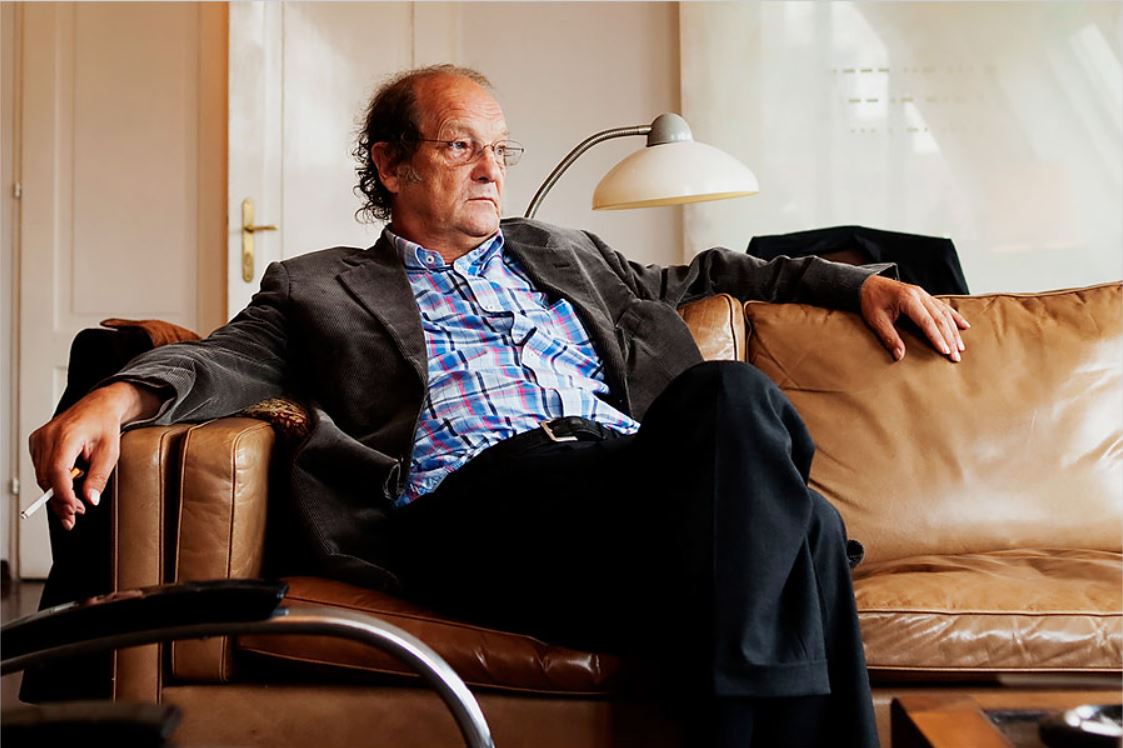 Silk Way weekly: What will be the consequences of recognizing or not recognizing the Taliban regime by the international community for Afghanistan and the world?
Silk Way weekly: What will be the consequences of recognizing or not recognizing the Taliban regime by the international community for Afghanistan and the world?
Professor Christian Reder: Maybe recognition will come because politics all too often never care on human rights. But breaking the isolation should be punished. Opposition against will be important, maybe for a long time.
Silk Way weekly: Racist nationalism and religious radicalism prevent any change in Taliban behavior. What solution do you propose if Taliban do not accept to talk with other ethnic and religious groups to reach an agreement on an inclusive government? Is military approach acceptable as one of the approaches? In this case, what will be the role of the international community? Will they support a military action against Taliban?
Professor Christian Reder: Even in countries with rather solid structures and educated population a majority of the people supported fascist and racist politics, in Italy from 1922 on, in Germany from 1933 on. Similar dangers are present again by successful movements in Europe and US, trying to destroy liberal democracy. Therefore strong groups of civil society are necessary to hold against in day-by-day opposition. The Islamic world is not alone with all that.
Racist nationalism is the worst case by combining two destructive ideas. It makes an inclusive government impossible – or such ideas change drastically.
That the international community cares for human rights all over the world is also just an idea. It is not possible to interfere with military forces everywhere against heavy crimes. And when it happened, situations often could not change to the better, as we have seen in Afghanistan and Iraq. Who should help the country again? One force against the Taliban could be political and maybe even military pressure from powerful Islamic countries, who are interested in peaceful cooperation with the west and a ,moderate Islam’ that is acceptable everywhere. For that a key question are equal rights for women.
Silk Way weekly: What strategy do you propose, if the current situation continues in Afghanistan and the international community deal with Afghanistan in the same way and the current regime stays in power for a longer period? How Afghan society, writers, media, political elites and leaders, cultural elites, and Afghan women, may defend human rights, social justice, the rights of other ethnic and religious groups, right to education, right to political activity, cultural right, economic tight and civil right, right to freedom of speech, and public security, and how they can do so? What strategies you suggest to protect human rights in Afghanistan?
Professor Christian Reder: All what you said is important and necessary. The Afghan society should be influenced in such directions. All this must be developed to show better ways than Taliban can promise. Progress was still on the way. People must realize which conditions make a better living possible.
Silk Way weekly: Afghanistan has not been able to form a sustainable political system neither by depending on international community and not by relying on its internal forces. What is the solution for the crisis of Afghanistan? Does it have internal or external solution?
Professor Christian Reder: Even in western countries the organized structures of democracy are under pressure. New political parties appear. Traditional parties need partners to govern. Just half of the population takes part of elections. The heart of it: equal rights for all and the rule of law. Without that, democracy will never grow. That religion and politics cooperate so close in many Islamic countries must find a new balance. Parliaments have to create laws. If religious authorities do this, there is a double reign with no future.
Silk Way weekly: What is Vienna’s roadmap for Afghanistan? How much do you think it will succeed?
Professor Christian Reder: The Vienna Conferences for a Democratic Afghanistan is a civil society movement, started as an initiative of former activists of the Austrian Relief Committee for Afghanistan, founded in 1980. As head of it I later published books on Afghanistan, the last one is also available in Farsi. Therefor we have no hidden powers behind us. We do not interfere. Summary papers of the conferences are published separate. It is not necessary to add personal comments. We organize and finance the meetings, because of long term relations and because the situation in Afghanistan is so horrible for the people there. Up to 70 Afghan men and women from all over the world discuss future possibilities in opposition to Taliban rule. That should and must be done, to create a stronger diaspora with chances beeing part of future possibilities.
Silk Way weekly: One of the hot political debates of Afghanistan is the type of the political system. What political system Vienna process propose for future of Afghanistan? Can federal system put an end to the conflict in Afghanistan?
Professor Christian Reder: The background: Experiences with forms of democracy. There are endless variations possibl but focussed on human rights and clear regulations special solutions for Afghanistan could be created. Much more difficult would be to realize this step by step, balancing federal and tribe interests or the integration of minorities with women rights as a central task.
Silk Way weekly: US president Joe Biden, thinks the people of Afghanistan will never become a nation. The people of Afghanistan have concluded from this that Afghanistan is no longer an issue for the world. In other words, they think Afghanistan does not matter for the world anymore. Do you think so?
Professor Christian Reder: To become a nation is the result of history, when the majority feels that the inhabitants of a country are united and want to live together. It should be a commitment, not the order of any higher power. If Afghanistan wants to exist within the present boarders such believe must grow. As I heard, especially younger generations have already this opinion. To belong to an ethnic group is no contradiction when a peaceful living together is secured.
Afghanistan will be an issue for the world when initiatives like the Vienna Conferences for a Democratic Afghanistan create diplomatic support for realistic strategies and isolate those powers ready to cooperate with Taliban terrorists.
In the world of Islam should be much more accepted that such radical religious regimes never lead to more personal freedom and economic prosperity. Especially the blocking of women and their energies reduce the capacities of societies drastically. This never was a general law. Even Muhammads wife Chadīdscha was a successful business woman.
Thank you in advance for your answers to our questions.
Note: Download the English version PDF here.


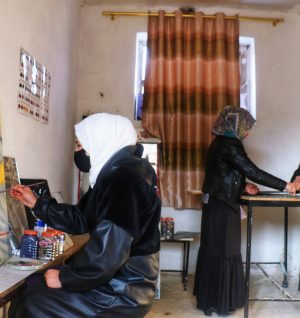
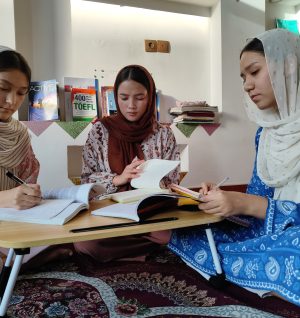
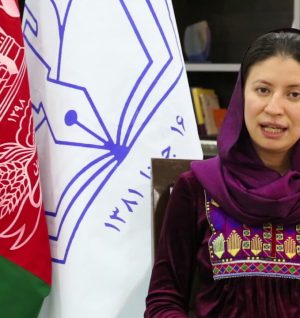

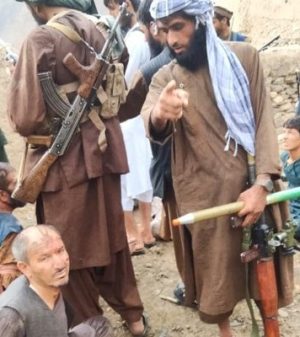
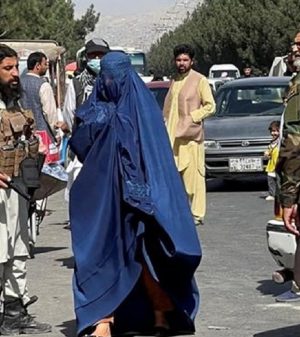
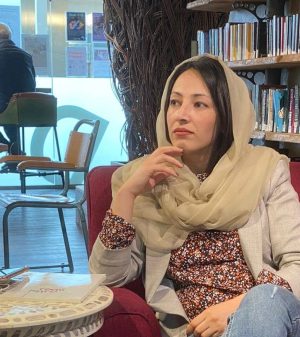
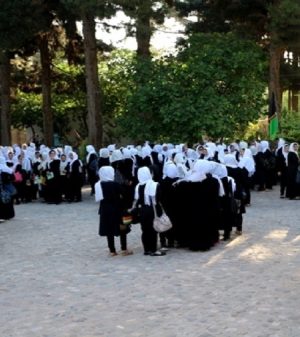
Add Comment